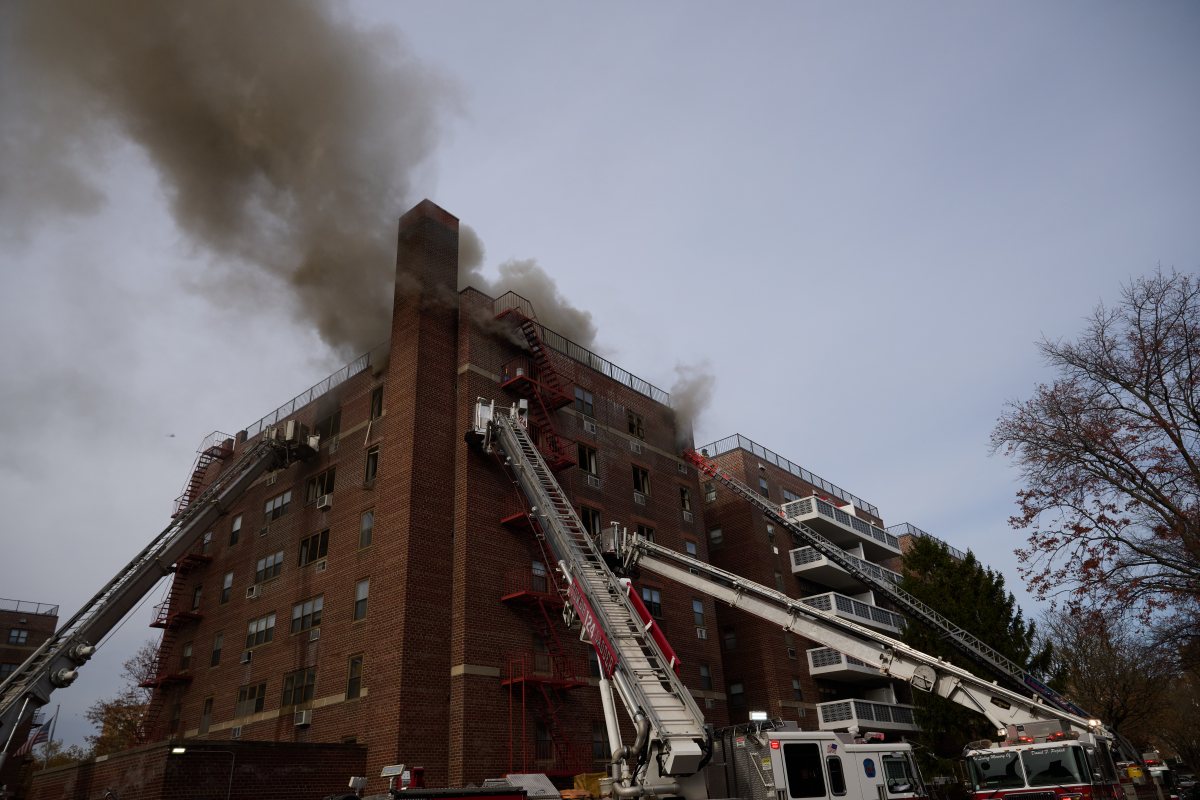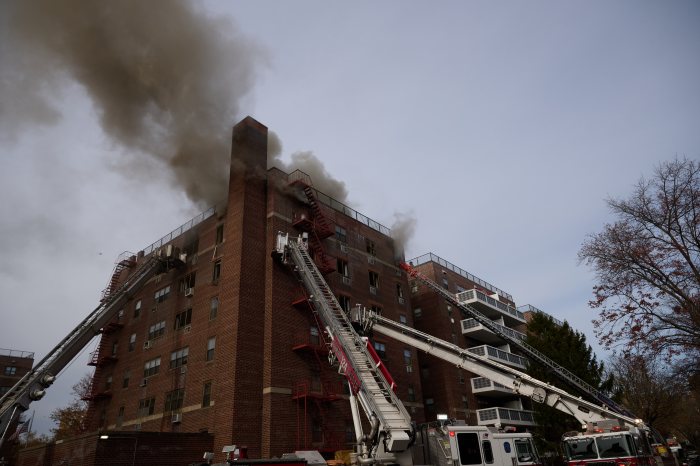By Lincoln Anderson
Ian Dutton is many things: a commercial airline pilot, a Soho activist who until recently was a member of Community Board 2, an advocate for increased public space for pedestrians and cyclists, and a dance activist who has battled the cabaret law, which bans boogieing in most places in New York.
On July 22 he suddenly found himself wearing yet another hat as an eyewitness and on-the-scene reporter in the horrific Oslo, Norway, bombing.
In January of last year, The Villager reported how, after the Haiti earthquake, Dutton, 41, a pilot for Continental, volunteered for a marathon mission to the stricken nation, airlifting 100 U.S. troops in and ferrying 80 survivors out.
This time, however, Dutton had just completed a routine flight from New York to Oslo, and wasn’t expecting anything out of the ordinary — namely, that he would be in the midst of the worst terror incident in Europe since the 2004 Madrid train bombings.
Four days later, back in Soho, in an interview in the new pop-up cafe on Sullivan St. outside The Local that he had vigorously advocated for, Dutton recounted his experience.
A photo Dutton took with his iPhone about half a minute after the blast.
He had arrived in Oslo at 11 p.m. and was staying on the 28th floor of a 34-story hotel, the capital city’s tallest building. Planning to meet up with some Oslo friends he’d met at an electronic/synth pop music concert in Germany, he had set his alarm for 3:30 p.m. He was emerging from slumber when the powerful bomb detonated.
“I was in this just-waking-up haze,” Dutton said. “I literally thought lightning had struck my bed. It felt like somebody thumped my chest — you felt that pressure — hard. And at the same time, the hotel rocked, for just like one ‘bam!’ — it was like someone kicked the hotel.”
While media reports initially said there had been multiple blasts, Dutton is sure he heard just one. At first Norwegian authorities weren’t revealing where the explosion occurred, but it was subsequently reported it was a car bomb detonated right outside the Prime Minister’s Office.
Dutton jumped up and ran over to his hotel room’s window and saw a giant cloud of dust and smoke about a quarter-mile away; about 30 seconds after the blast, he shot a photo of the smoke plume with his iPhone.
At first, he thought it was a planned demolition or accidental gas explosion. Oslo is normally an extremely safe city, and had never been seen as a terrorist target.
“A tourist can walk around Oslo for a whole day and not see a police officer or a police car,” he noted.
Still unsure what had caused the massive blast, within several minutes Dutton had posted a photo of the smoke plume on Facebook. Around the same time, he started hearing sirens outside.
Right away, though, the experience felt eerily familiar for Dutton, who was home in Soho with his wife, Shea Hovey, when the 9/11 attack occurred 10 years ago. He heard the plane hit the first World Trade Center tower, then people yelling, “Oh my God!” as they looked skyward in disbelief. He and Hovey quickly walked down to City Hall Park’s southern tip to try to volunteer to help, when the first tower collapsed, enveloping them in a dark cloud of dusty debris.
Placing flowers in a memorial wall outside the Nobel Peace Center in downtown Oslo, which honors the Nobel Peace Prize laureates, their work and ideals.
In New York, after the first plane hit the Twin Towers, the news was quickly reported on TV and radio. But in Norway, things moved much slower. Right after the blast, Dutton flicked on his hotel room’s TV.
“It was a ‘MacGyver’ rerun — in Norwegian,” he said, incredulously. “It was 30 minutes before Norwegian TV had switched over to live feed.” A local news Web site, however, did have something up within 10 to 15 minutes of the explosion.
A Norwegian friend that Dutton spoke to on his phone told him to send his photos to several local news outlets. However, within an hour and a half, after figuring out how to do it, Dutton had posted a photo on CNN’s iReport site, which is designed to accept public submissions of photos and news stories.
Less than two minutes later, Dutton received a call from Atlanta from an editor for CNN Wire, whom he asked to call him back on his hotel line, so he wouldn’t get hit with a huge cell phone bill. In the meantime, though, a producer with CNN International promptly called him on his cell phone. Holding a phone at each ear, Dutton asked to speak to them one at a time, and the Wire editor went first, after which the International reporter called him back.
Reporters from various CNN media kept calling Dutton, and he figures he ended up doing about 16 separate audio interviews. The hotel phones were overloaded, so Dutton did all the interviews on his iPhone. It would be nice if CNN reimbursed him for the phone bill, he said.
He was also profiled in a Daily News article the day after the blast, “New Yorker in Oslo attacks stunned out of nap, bomb shook hotel ‘like an earthquake,’ ” which lowered his age to 31.
“I’m running with it!” Dutton said of the generous typo.
There were a couple of reasons why the media relied on Dutton so heavily.
“It turns out Oslo does not have breaking news,” he explained. “I was a native speaker with good command of English. I had a good overview of the site: I was close but very safe. And the other thing was that I could relate my experience on 9/11.”
The interviewers focused mainly on two things.
“They kept coming back to what was the blast like? What did it feel like in that instant?” Dutton said. “And how does what is going on in Oslo compare to what happened on Sept. 11?
“I became like the chopper reporter, basically,” he said. “Everyone who listened to it said I sounded pretty professional.”
He said he just tried to keep calm while talking to the reporters and describing the scene. Asked if his experience speaking at C.B. 2 meetings had helped in that regard, he said, actually, it was more his airline training — manning flight simulators in conditions of engines on fire, wind shear or runaway autopilot.
“You have to stay calm or you’re booted out of the job,” he noted of the stressful flight tests.
In another similarity with 9/11, from his hotel perch, Dutton had observed how people streamed away from the bombing site, just as stunned New Yorkers had trudged over the East River bridges as they evacuated Lower Manhattan.
The pilot said it wasn’t until two hours after the Oslo explosion that people learned that the cold-blooded bomber, an hour earlier, had also fatally gunned down scores of youths at a summer camp on Utoya island.
The outpouring of national pride in the face of evil was also akin to what was seen in New York 10 years ago.
“All my Norwegian friends starting putting up Norwegian flags on Facebook, and writing ‘I love Norway,’” Dutton noted. “It’s that ‘We will overcome’ feeling, the psyche was the same as 9/11.”
Norwegian Prime Minister Jens Stoltenberg speaking at the peace rally in Oslo on July 25.
Around midnight, after concluding all the interviews, Dutton went for a walk to check out the scene outside. The devastation zone radiated out from the city’s complex of government buildings. Second-story windows on most buildings were blown out, while those on the first story, reinforced against burglary, were largely intact.
In the past, Dutton had always enjoyed Oslo’s hopping nightlife scene, but Karl Johan Gata, the main entertainment strip, was deserted. Instead there was broken glass on the street and police tape cordoning off dangerous areas.
In a bizarre coincidence, at 6:30 the next morning, his hotel was hit by lightning. But he said he knew it wasn’t another bomb blast.
“It just didn’t feel the same,” he said.
Dutton flew the return trip back to New York Saturday, then jetted right back to Oslo Monday morning on a normally scheduled flight, in time to attend a massive, 200,000-person “peace memorial” in Oslo that had been announced 24 hours earlier on Facebook.
Concerned about safety in the wake of the attack, Continental told Dutton and his fellow flight-crew members to stay at an airport hotel, and advised them to stay away from both downtown Oslo and large groups.
“So what did I do?” Dutton said, with a smile. “I went downtown and got in the largest rally in Norway’s history.”
He was awed by the millions of flowers — “mountains and mountains of flowers” — people left at memorials around Oslo, so many he figures they must have been airlifted in. Also, he was impressed at how Norwegians and their government don’t show signs of caving in to fear and closing their open society. He noted there seemed to be minimal security when the prime minister spoke at the peace rally.
“I could have thrown a rock and hit him. I was that close,” Dutton said. “No one searched my bag.”
A once-fierce culture that still toasts with the word “skol” — harking back to Vikings’ tradition of drinking from their victims’ boiled skulls — is determined to remain peaceful, despite last month’s horrible carnage.
“I agree with the Norwegians,” Dutton said. “I don’t think it calls for radically changing society — but just meet this crazed killer with openness and kindness and democracy. To do otherwise is to play into his hands.”
Meanwhile, the Soho airman will forever be linked to the story as the hotel “chopper reporter” on the scene after the bomb blast. In a sense, it “paid to post.”
“If I hadn’t snapped a couple of pictures, they wouldn’t have found me, basically,” he said.




































